
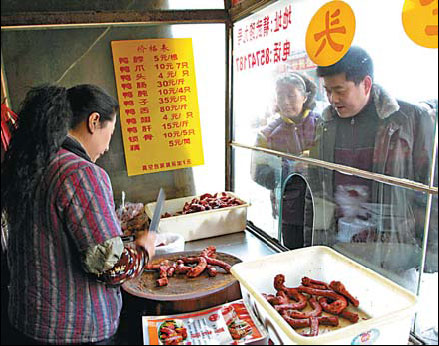 |
| At Jingwu Road, eager customers wait as their orders of duck necks are chopped into bite-sized portions. (Sun Xinming / For China Daily) |
Soccer fans started pouring in by the thousands after the local team, whose home stadium was near Jingwu, joined the top tier of the national professional league in 1997.
"Every stall was too busy to feed them all," Wu recalls. "Local officials had to stand in line. I was often too exhausted at night to count the day's earnings."
Wu opened three new stalls in 1997. He turned down an offer to a buy his business in 2000, although he was offered 10 times his investment.
That was a wise move. In 2002, the film Life Show, centered around a Wuhan woman who earns her living selling spicy duck necks, lifted the dish to national acclaim.
Visitors to the city started flocking to Jingwu en masse to try its famous duck necks.
But a year later, SARS disrupted Jingwu's business.
Only about 40 of its 100 stalls survived the epidemic. Wu didn't abandon his business but stocked up on frozen necks.
"The business couldn't fade," he says. "Its reputation was too great."
By 2004, Wu had become one of Jingwu's richest tycoons. That same year, he established his company and upgraded his stalls into eateries where staff wore uniforms and used disposable gloves.
Wang Songlin earned bundles selling premixed spice bags to vendors across the country.
Tu Guohua started a company selling vacuum-sealed bags and gift boxes of duck necks in supermarkets nationwide.




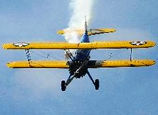
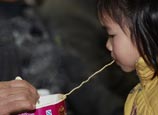
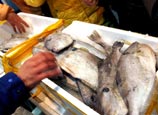
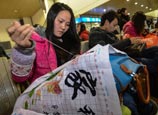
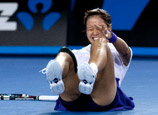
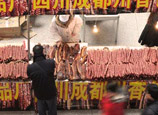
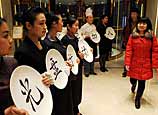







 China's weekly story (2013.01.21-01.27)
China's weekly story (2013.01.21-01.27)


![]()
